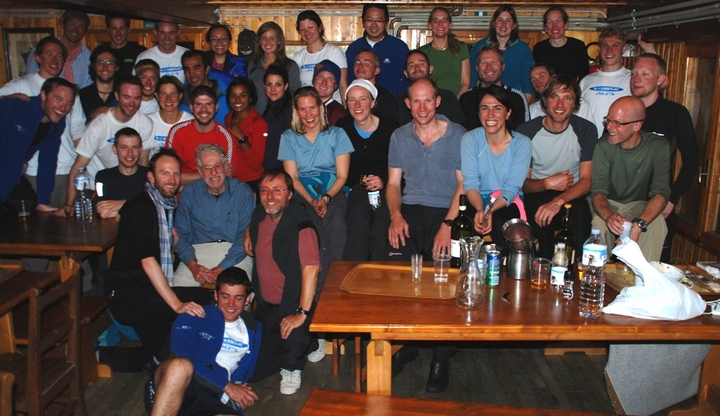Xtreme Alps (2010)
At the UCL Centre for Altitude, Space and Extreme Environment Medicine we have chosen to study the effects of hypoxia by studying healthy volunteers at high altitude. Our flagship project, Caudwell Xtreme Everest (CXE) 2007, was the largest high altitude study ever undertaken and is generating results that will benefit critically ill patients in the long term.
However, the results also generated more questions, that required investigation. In particular, the team wished to trial a dietary supplement that they believe will improve humans tolerance of hypoxia. This is based not only on results from the 2007 expedition, but also studies carried out in laboratories by collaborators. This is the first time that this supplement was tested in humans at high altitude to improve their tolerance of hypoxia. They aimed to carry out this trial by ascending to the Margherita Hut, at 4559m in the Alps, and studying each other as they were exposed again to hypoxia. The results may transform the way in which hypoxia is treated in critically ill patients.
Investigators consisted of members and collaborators of UCL CASE Medicine. Many of these investigators were experienced field investigators from previous CASE field studies at high altitude. Each study had a nominated lead investigator; and an overall research leader managed these investigators. Other investigators provided assistance in the laboratory during studies. Lead investigators, under the guidance of the research leader, were responsible for ethical committee approval of all studies, along with subject recruitment and safe conduct of experiments in the field.





